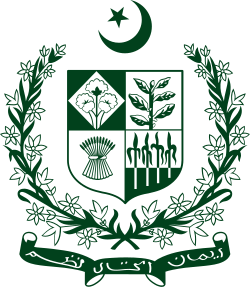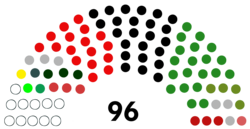| توشہ خانۂ | |
 | |
| Agency overview | |
|---|---|
| Formed | 1974 (49 years ago) |
| Jurisdiction | Government of Pakistan |
| Headquarters | Islamabad |
| Website | www |
 |
|---|
Toshakhana is a governmental department controlled by the Cabinet Division of the Government of Pakistan. It was initiated in 1974 during the ministry of Zulfikar Ali Bhutto.
Contents
Its main purpose is to collect and keep gifts which are received by members of parliament, ministers, foreign secretaries, the President, and the Prime Minister. [1] [2]

